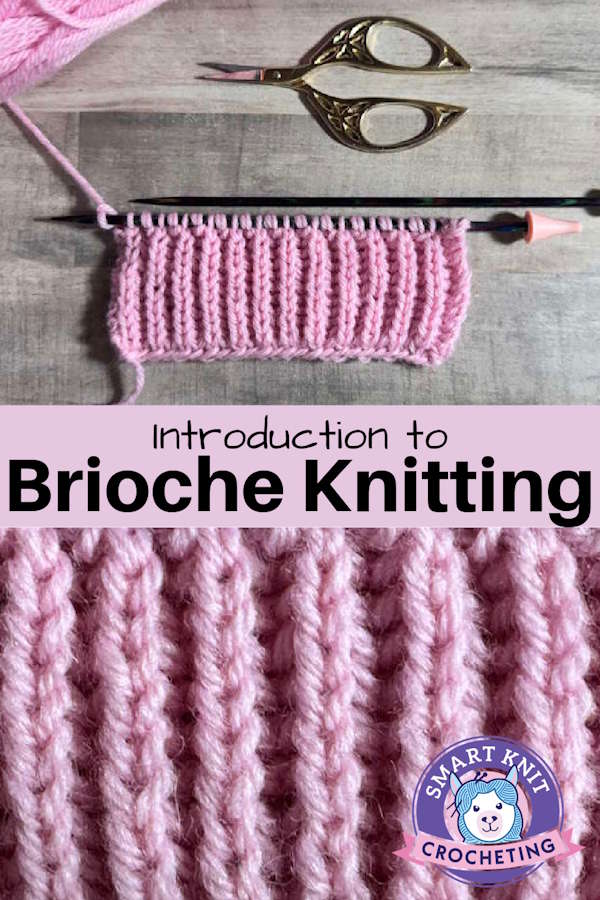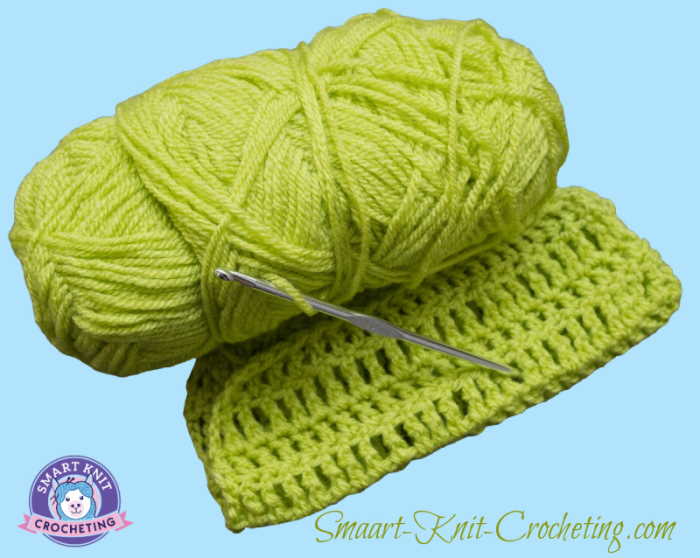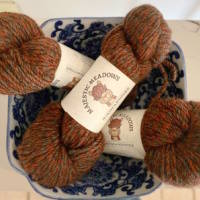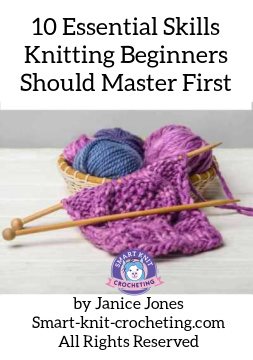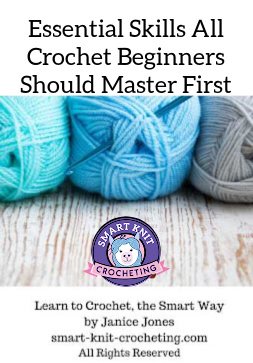Brioche Knitting: Beginner's Guide to Basic Brioche in One Color
Brioche knitting is an excellent technique that creates a soft, cushy, and reversible fabric. While it may seem complicated initially, it becomes much more manageable once you break it down.
If you’re comfortable knitting, purling, yarn forwards, and slipping stitches, you're already to begin brioche knitting. This guide will teach you the basic concepts and techniques to create beautiful brioche pieces.
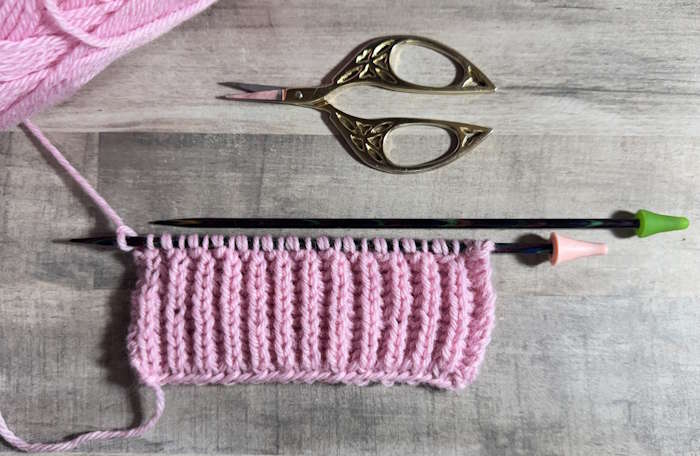
What is Brioche Knitting?
Brioche knitting is characterized by its lofty, ribbed texture. It typically uses a combination of slipped stitches and yarnovers to create a thick, stretchy fabric that looks and feels luxurious.
If you work with two colors, the double-layered fabric allows different colors on each side. The best explanation I could find for Brioche comes from the puffy French pastry called brioche.
Someone must have seen the similarity between the poofy stitch and the puffy baked good; the name caught on and is still with us today.
I will introduce the brioche knit stitch (brk) and the brioche purl stitch (brp) in this article.
Let’s first look at some of the terminology which may not be familiar to you.
Abbreviations
- BRK (Brioche Knit): Pronounced Bark. Knit the stitch together with its accompanying yarn over from the previous row.
- BRP (Brioche Purl): Pronounced burp. Purl the stitch together with its accompanying yarn over from the previous row.
- Sl1YO: Slip one yarn over, all done simultaneously to create a double stitch on the right needle, one straight and the other covering the stitch in a diagonal crisscross direction.
- YF (Yarn Front): Move the yarn to the front of the work.
- YB (Yarn Back): Move the yarn to the back of the work.
- Sl1yo (Slip One, Yarn-Over): Slip one stitch purlwise with yarn in front, then bring the yarn over the needle to create a yarn over.
Brioche Knit Stitch Chart Symbols
There are quite a few brioche knit stitch chart symbols, but for simplicity, I've only included some of the most basic.
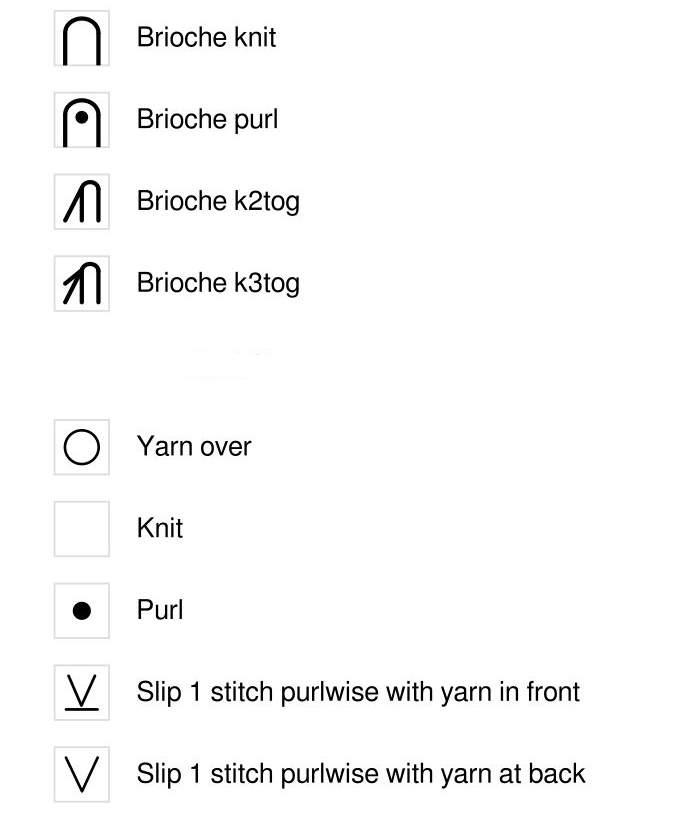
Examples of Other Brioche Stitches
Some people may get confused between brioche and slip-stitch knit patterns. They are not the same. Instead, Brioche knitting is a subset of Slip Stitch Knitting and is considered a category in and of itself. Just like Mosaic and Double Knitting, they all use slipped stitches. Brioche uses slip stitches and yarnovers to create a fluffy texture. It has its own set of rules.
On Briochestitch, you will find a huge selection of brioche knitting patterns from one color to two colors, and more. This is a great collection and I recommend it if you want to pursue brioche knitting.
Supplies Needed for the Basic or Knit Brioche Stitch
Yarn: Choose a yarn that highlights the brioche texture. A smooth, medium-weight yarn is excellent for beginners. I recommend a worsted-weight yarn in a wool or wool blend for best results. Fuzzy or textured yarns do not work well with Brioche knitting.
For the practice swatch,
I used Knit Picks, Brava, Worsted Weight Yarn.
Needles: You may want to go down one or two needle sizes for the best stitch definition. For example, with worsted-weight yarn (4), I usually use a US 7 (4.5 mm) or US 8 (5.0 mm). However, I used a set of US-size 6 (4.0 mm) needles for the swatch shown above.
You will also want a tapestry needle for weaving in ends and a pair of sharp scissors.
Is the Brioche Knit Stitch Reversible?
Yes, it looks identical on both sides.
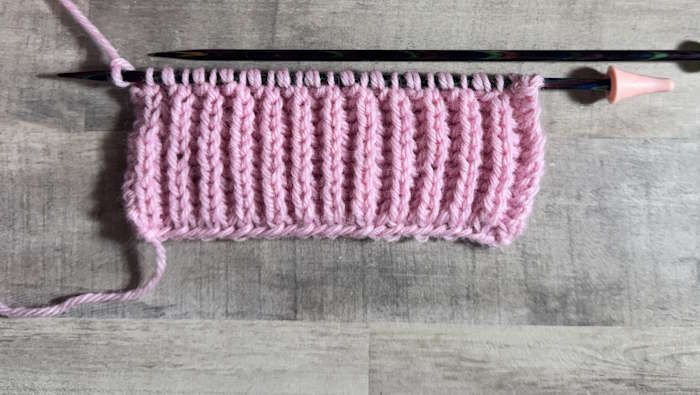 Brioche Knitting: Right Side
Brioche Knitting: Right Side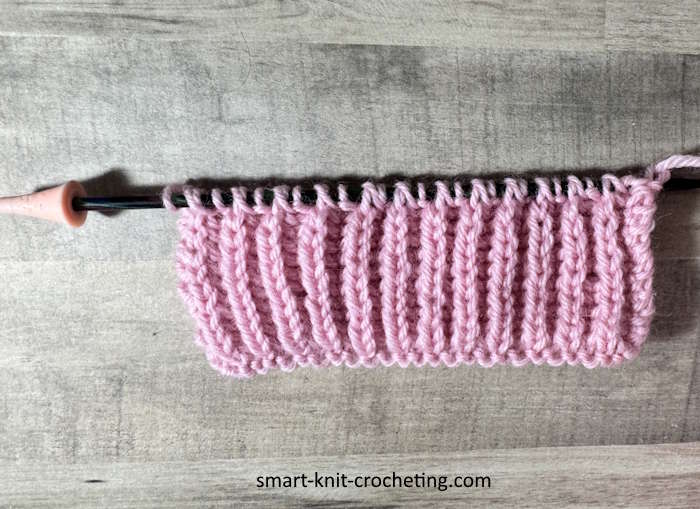 Brioche Knitting: Wrong Side
Brioche Knitting: Wrong SideThe Basic Brioche Knit Stitch: Instructions
We'll begin with a simple single-color brioche rib. Follow these steps to get started:
Before you set up the row, you will want to cast on an even number of stitches and work two rows in a garter stitch to make this practice swatch a little easier.
When you cast on, be sure to cast on loosely. If your cast-on methods are tight, consider casting on with a needle one size larger than the one you will use to do the brioche stitch.
Another technique is to cast on so that your stitches are spread out more than you might typically.
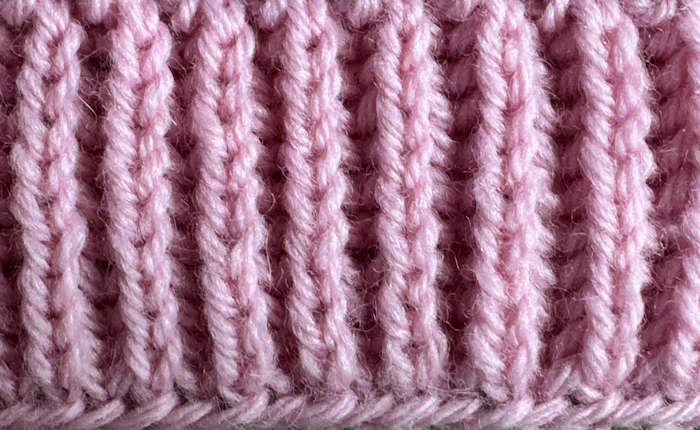
Set-up Row
The basic brioche knit stitch is worked on a set-up row followed by two additional rows. When knitting flat, your two rows will be essentially the same.
Set-Up Row (Foundation Row) This row prepares your stitches for brioche knitting.
I cast on 18 stitches for the practice swatch using the long tail cast-on method. You can use any cast-on method you prefer, but not a super stretchy one, as it tends to stretch out on its own. I also designated the first and last two stitches on each row as border stitches.
K 2, * Sl 1 purlwise, yarn over, K 1 Repeat from * until you reach the last two stitches of the row. K2.
Basic Brioche Knitting Pattern
Once your foundation row is complete, work in the brioche rib pattern. One row of knitting takes two rows or passes.
Row 1 (RS): K 2, *Sl1yo (Slip 1 purlwise with yarn in front, then bring the yarn over the needle) and to the back, then make a brioche knit stitch (Brk). To do this, knit the next stitch along with the yarn-over from the previous row as one stitch. Repeat from * to the last two stitches. K2.
Row 2 (WS): For flat knitting, row 2 is the same as row 1.
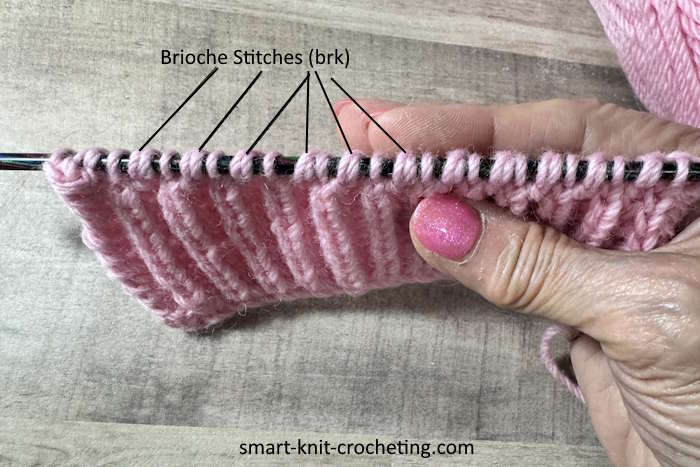
Common Problems and Solutions
It’s not always easy to see the rib pattern until you have finished a few rows.
Tension and Practice:
Brioche knitting can be looser than other knitting styles. Practice maintaining an even tension as you work through your rows. If the stitches don’t look even, go down one needle size.
Fixing Mistakes:
Dropped stitches can be challenging to fix in brioche. Teaking is the best way to fix mistakes.
Conclusion
Brioche knitting is a rewarding skill to learn but not considered a beginner skill. It provides a unique thickness, puffiness, and warmth to your knitting projects.
This article is only the first step; there is so much more to learn. If you love the feel and texture, you will want to move on to additional brioche stitches that will add even greater flexibility to your work.
Happy Knitting
Brioche Knitting: Pin Now, Knit Later
About Janice
Hi, I’m Janice, the voice behind Smart-Knit-Crocheting. I love to knit and crochet and even more, I love teaching others what I know.
Though I learned to knit and crochet as a child, I didn’t get serious about these amazing hobbies until I retired. I’m a certified knit and crochet instructor through the Craft Yarn Council and am working on becoming a Master Hand Knitter through The Knitting Guild Association.
I’m currently living with my husband of over 50 years and our 6 Shih Tzu dogs.
I love hearing from you, so please drop me a line and let me know what you’re working on, whether you love knitting or crocheting more, and if you have any questions. Please visit my about me page for more information.
Happy Crocheting
